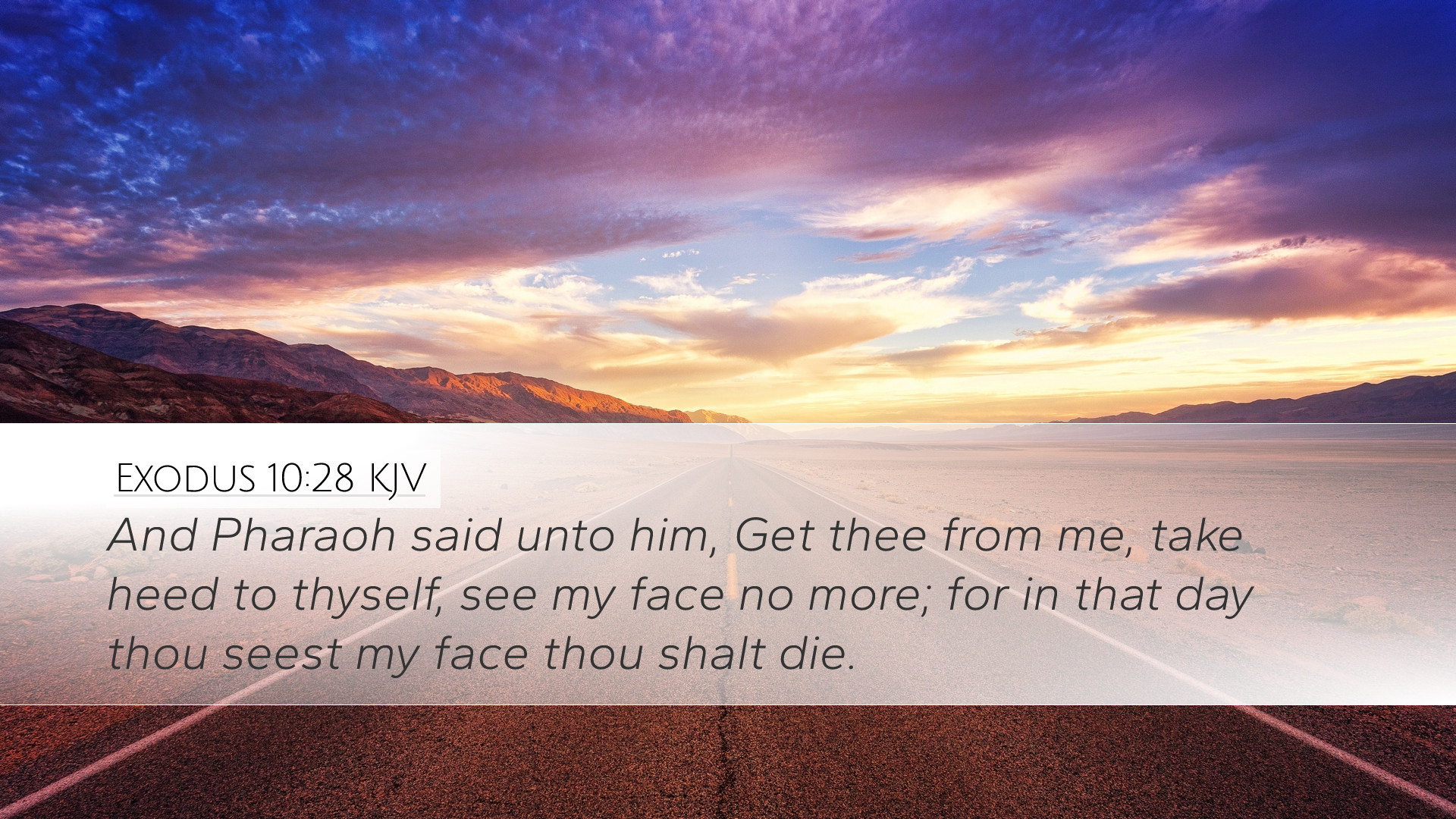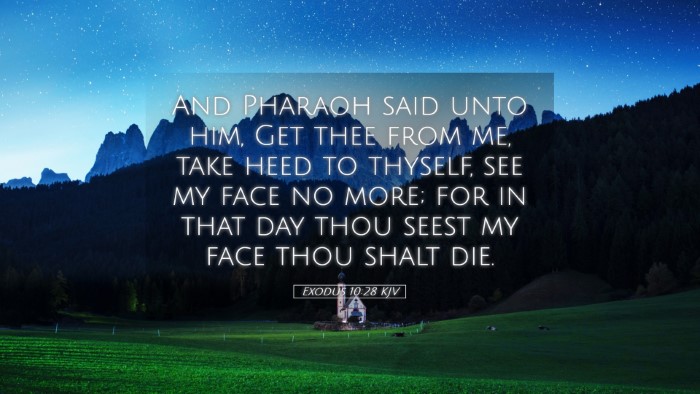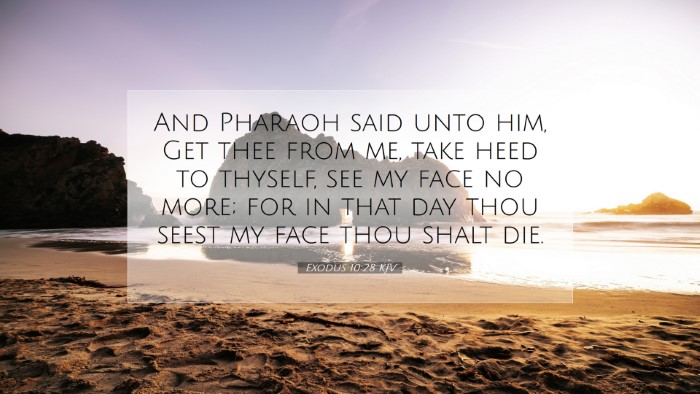Commentary on Exodus 10:28
Verse: Exodus 10:28 - "And Pharaoh said unto him, Get thee from me, take heed to thyself, see my face no more; for in that day thou seest my face thou shalt die."
Introduction
Exodus 10:28 captures a pivotal moment in the narrative of Moses and Pharaoh, encapsulating the conflict between divine authority and human autonomy. This verse reflects Pharaoh's hardened heart and his escalating defiance toward God’s commandments.
Contextual Background
The context of this verse is essential for understanding its implications. The plague of locusts has just devastated Egypt as a result of Pharaoh's refusal to obey God’s command to release the Israelites from slavery. In the midst of this, Moses boldly confronts Pharaoh, declaring the word of the Lord.
Analysis of the Verse
Pharaoh's Command: Pharaoh's statement, "Get thee from me," illustrates his growing impatience and rejection of God’s messenger. His command is laced with a sense of finality, indicating his unwillingness to engage further with Moses.
- Emotional Response: Pharaoh's reaction is driven by anger and fear. He perceives Moses as a threat not just to his sovereignty but also to his life, demonstrating the spiritual blindness that can accompany arrogance.
- Threat of Death: The ultimatum "thou shalt die" is noteworthy as it reveals Pharaoh’s understanding of the stakes involved in opposing God's will. This serves as an ironic twist, for it is Pharaoh who, in his rebellion, ultimately invites destruction upon himself and his nation.
Theological Insights
This verse raises profound theological reflections relevant for pastors and theologians:
- The Nature of Authority: Pharaoh embodies earthly authority and its inherent limits. The verse suggests that human power is ultimately subordinate to divine rule, as exemplified by God’s persistent call for Egypt to release the Hebrews.
- The Hardening of Hearts: The theme of a hardened heart recurs in Exodus. Pharaoh's inability to recognize God’s sovereignty serves as a cautionary tale about the spiritual dangers of pride and rebellion.
- Prophetic Resistance: Moses represents the prophetic voice that calls for justice and liberation. His encounters with Pharaoh illustrate the tension between divine command and human disobedience.
Commentaries from Notable Scholars
Matthew Henry
Matthew Henry notes that Pharaoh's expulsion of Moses signifies the deepening animosity towards divine authority. He comments on Pharaoh's refusal to acknowledge God's actions as an act of judgment, highlighting the tragic consequences of pride and obstinacy.
Albert Barnes
Albert Barnes provides valuable insight into the implications of Pharaoh's words. He underscores the notion that Pharaoh, in his anger, recognizes the severity of his situation and the potential consequence of seeing Moses again. This indicates awareness of the power struggle occurring between himself and the God whom Moses represents.
Adam Clarke
Adam Clarke elaborates on the irony embedded in Pharaoh's statement. His command to Moses, while intended as a dismissal, resonates with a deeper theological truth: those who refuse to heed God's call often find themselves on a path leading to their own destruction. Clarke emphasizes that Pharaoh's refusal could serve as a lesson in humility and obedience towards God’s will for others.
Application for Pastoral Ministry
For pastors and ministry leaders, Exodus 10:28 presents multiple points of application:
- Engagement with Authority: The interaction between Moses and Pharaoh teaches that God’s servants must sometimes confront earthly authorities when they stand against divine justice.
- Encouragement in Discouragement: Ministers may learn from Moses' perseverance in the face of rejection, maintaining faith and courage even when the message they bear is met with hostility.
- Reflection on Disobedience: Congregations can be encouraged to examine their lives for areas of defiance towards God's will, understanding that resistance may lead to spiritual blindness akin to Pharaoh’s.
Conclusion
Exodus 10:28 serves as a stark reminder of the consequences of it hardening one's heart against God's will. It illustrates the dangers posed by pride and resistance to divine authority while affirming the ultimate sovereignty of God in guiding human history. The dialogue between Moses and Pharaoh invites reflection on authority, humility, and the cost of disobedience.


